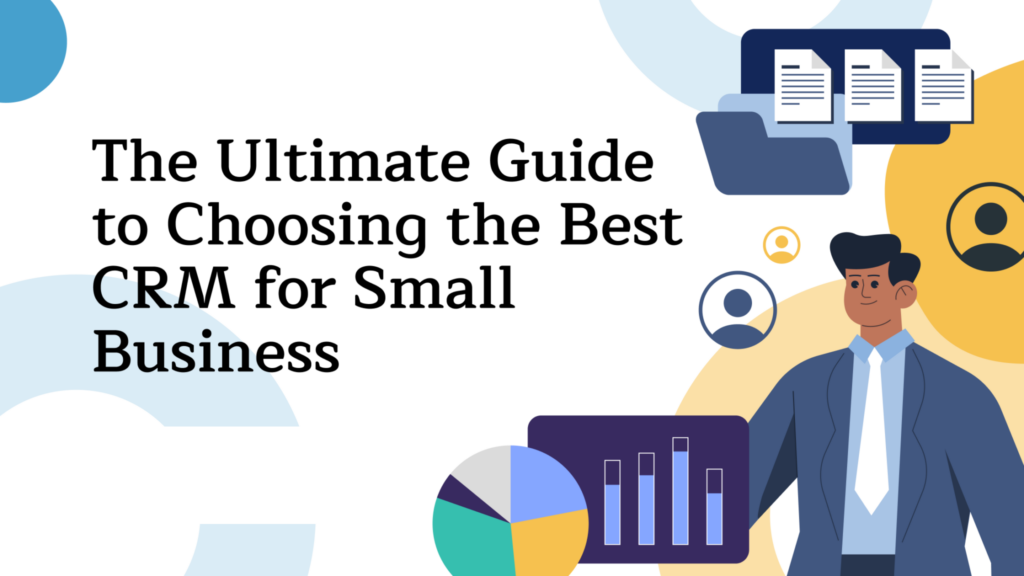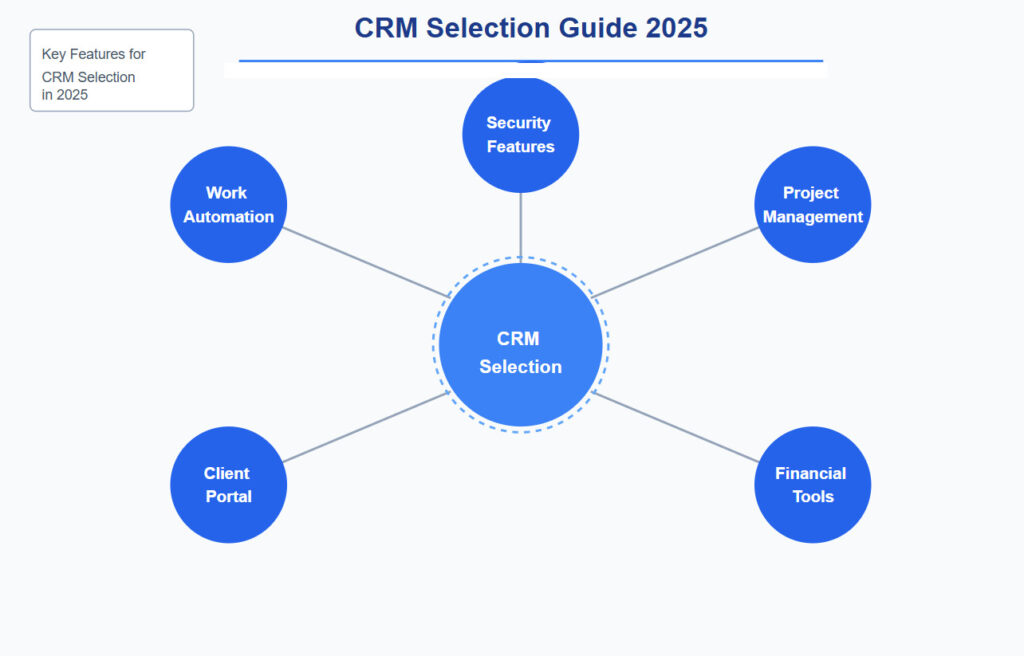In today’s digital business landscape, choosing the right Customer Relationship Management (CRM) software has become increasingly complex. This comprehensive guide will help you navigate the essential features and considerations for selecting a CRM system that matches your business needs in 2025.

Understanding Your Business Needs
Before diving into specific features, it’s crucial to assess your organization’s requirements:
- What are your primary business processes?
- How many team members will use the system?
- What level of client interaction do you need?
- What’s your budget and preferred payment model?
According to a recent Gartner study, businesses that align their CRM choice with clear organizational needs see a 23% higher return on their CRM investment.
Essential Features for Modern CRM Systems
1. Project Management Integration
Modern businesses need more than basic contact management. Look for:
- Task management with priority settings
- Project templates for recurring work
- Time tracking capabilities
- Milestone management
- Team collaboration tools
2. Client Communication Tools
Effective client communication remains crucial for business success:
- Secure client portals
- Document sharing capabilities
- Integrated messaging systems
- Support ticket management
- Knowledge base functionality
Harvard Business Review reports that businesses with integrated client communication tools in their CRM see a 34% increase in client satisfaction scores.

3. Financial Management
Modern CRM systems should handle:
- Invoice generation and management
- Multiple payment gateway integration
- Expense tracking
- Financial reporting
- Tax management
- Recurring billing options
4. Customization and Automation
Look for systems that offer:
- Custom field creation
- Workflow automation
- Document templates
- Email automation
- Custom reporting
Deployment Options
Cloud vs. Self-Hosted Solutions
Consider these factors when choosing between cloud and self-hosted options:
Cloud Solutions
- Lower initial setup costs
- Managed updates and maintenance
- Monthly subscription fees
- Limited customization
Self-Hosted Solutions
- One-time payment options
- Complete data control
- Higher customization potential
- More security options
According to TechRadar’s 2024 analysis, businesses with stringent data privacy requirements increasingly prefer self-hosted CRM solutions, with adoption rates growing by 27% year-over-year.
Security Considerations
In 2025, security remains paramount. Essential security features include:
- Role-based access control
- Data encryption
- Regular backup options
- Audit trails
- Two-factor authentication
Integration Capabilities
Modern CRM systems should integrate with:
- Payment processors
- Email platforms
- Calendar systems
- Document management tools
- Accounting software
Cost Considerations
When evaluating costs, consider:
Direct Costs
- License fees or purchase price
- Implementation costs
- Training expenses
- Hardware requirements (for self-hosted solutions)
Indirect Costs
- Maintenance time
- Staff training
- Customization needs
- Update management
Implementation Best Practices
For successful CRM implementation:
- Start with a pilot program
- Provide comprehensive training
- Document your processes
- Set clear metrics for success
- Plan for data migration
- Establish user adoption strategies
Future-Proofing Your Choice
Consider these emerging trends:
- AI integration capabilities
- Mobile accessibility
- API availability
- Scalability options
- Regular update cycles
Making Your Decision
Create a structured evaluation process:
- List your must-have features
- Set a realistic budget
- Research available options
- Request demonstrations
- Check user reviews
- Evaluate support options
- Consider scalability needs
Conclusion
Selecting the right CRM in 2025 requires careful consideration of your business needs, technical requirements, and growth plans. Focus on solutions that offer comprehensive project management, strong client communication tools, and robust financial features. Remember that the best CRM is one that your team will actually use and that can grow with your business.
While the initial selection process might seem overwhelming, taking time to evaluate your options thoroughly will pay dividends in improved efficiency, better client relationships, and stronger business growth.
The landscape of CRM software continues to evolve, but focusing on these core elements will help ensure you select a solution that serves your business well both now and in the future.


